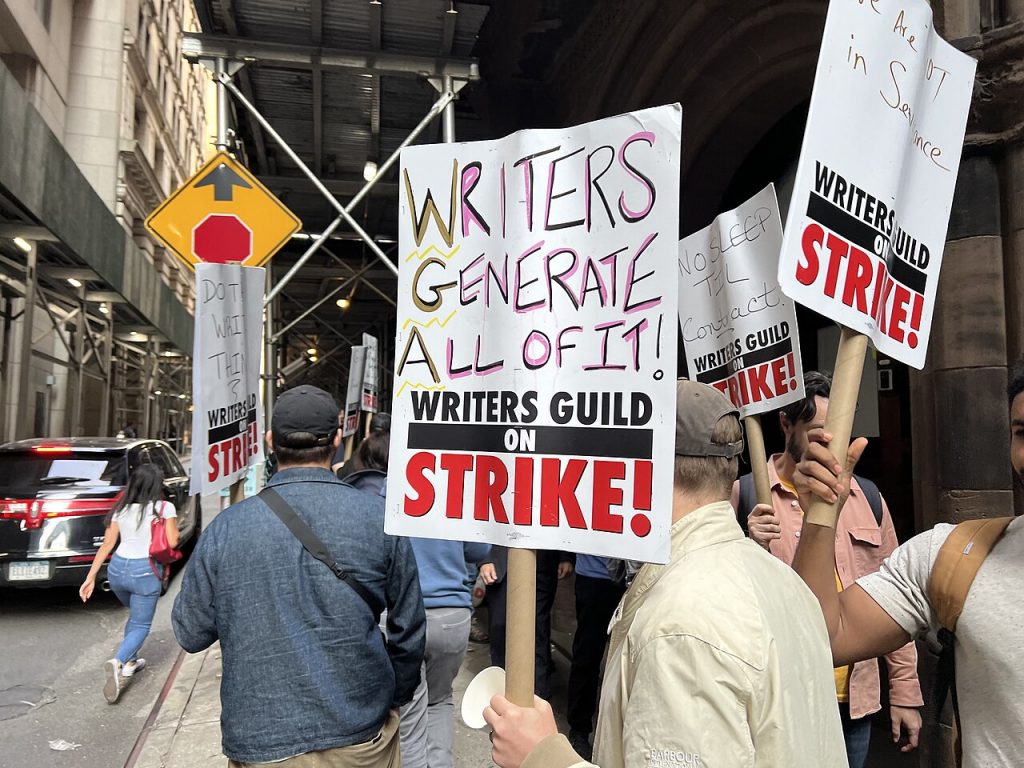
After a months-long stalemate, The Writers Guild of America (WGA) has officially ended its 148-day strike. The strike began May 2 and ended Sept. 27 after an agreement was reached with The Alliance of Motion Picture and Television Producers (AMPTP). This marks the resolution of one of several major labor disputes within the entertainment industry this year.
The strike, which is the first held by the WGA in 15 years, began for several key reasons. One of the major disputes of the strike was related to residuals from streaming media. The WGA claimed that the AMPTP took too great a share of these residuals, harming writers’ wages. Furthermore, the WGA was concerned about risks posed to job security by the emergence of generative AI (e.g. ChatGPT). The WGA wanted to ensure that AI was only used as a tool (e.g. for performing research or generating ideas), not as a replacement for the writers themselves. Mandatory staffing and duration of employment terms were also important issues. The WGA wanted these stipulations to be included in their contract, while the AMPTP opposed them.
The ramifications of the strike were deeply felt across the entertainment industry. Several studios had to close or significantly reduce staff. Negotiations were tense. The WGA estimated that its proposals would yield writers about $429 million annually, while the AMPTP’s initial offer only promised $86 million.
An incident embodying the tension of the strike occurred on June 9. A line producer with Lionsgate engaged in an altercation with a group of picketing writers (outside of the production headquarters for a show he was producing). The producer accelerated his car towards the group of writers, only to stop immediately before hitting them. He at first tried to claim he didn’t see them, but later admitted to trying to scare them. Lionsgate released a statement that they were investigating the incident and that the producer has been suspended.
On July 12, Deadline Hollywood published an anonymously sourced article claiming that AMPTP did not plan to resume negotiations until October at the earliest. This is because some AMPTP members believed that writers would begin to lose their housing around this time and that this would give the AMPTP more leverage in the negotiations. Upon the release of this article, the AMPTP distanced themselves from this, claiming that they wanted to close a deal as soon as possible.
In September, an agreement was finally reached. Overall, the terms of the agreement are beneficial for writers, with the WGA Negotiating Committee calling the deal “exceptional” in an email to members. The WGA asked for more transparency about streaming viewership. Companies that manage a streaming service will provide the WGA with the total number of hours viewed of original streaming series. Writers will receive a bonus when shows perform particularly well on a streaming service. The deal also established rules regarding AI with both sides agreeing that AI cannot write or rewrite a script. Finally, rules were established regarding minimum staffing in writers’ rooms. The WGA was concerned that the growing trend of small writers’ rooms would lead to an incredibly competitive job market so, the agreement stated that the number of writers will increase in proportion to a show’s number of episodes (unless a show has a single writer).


